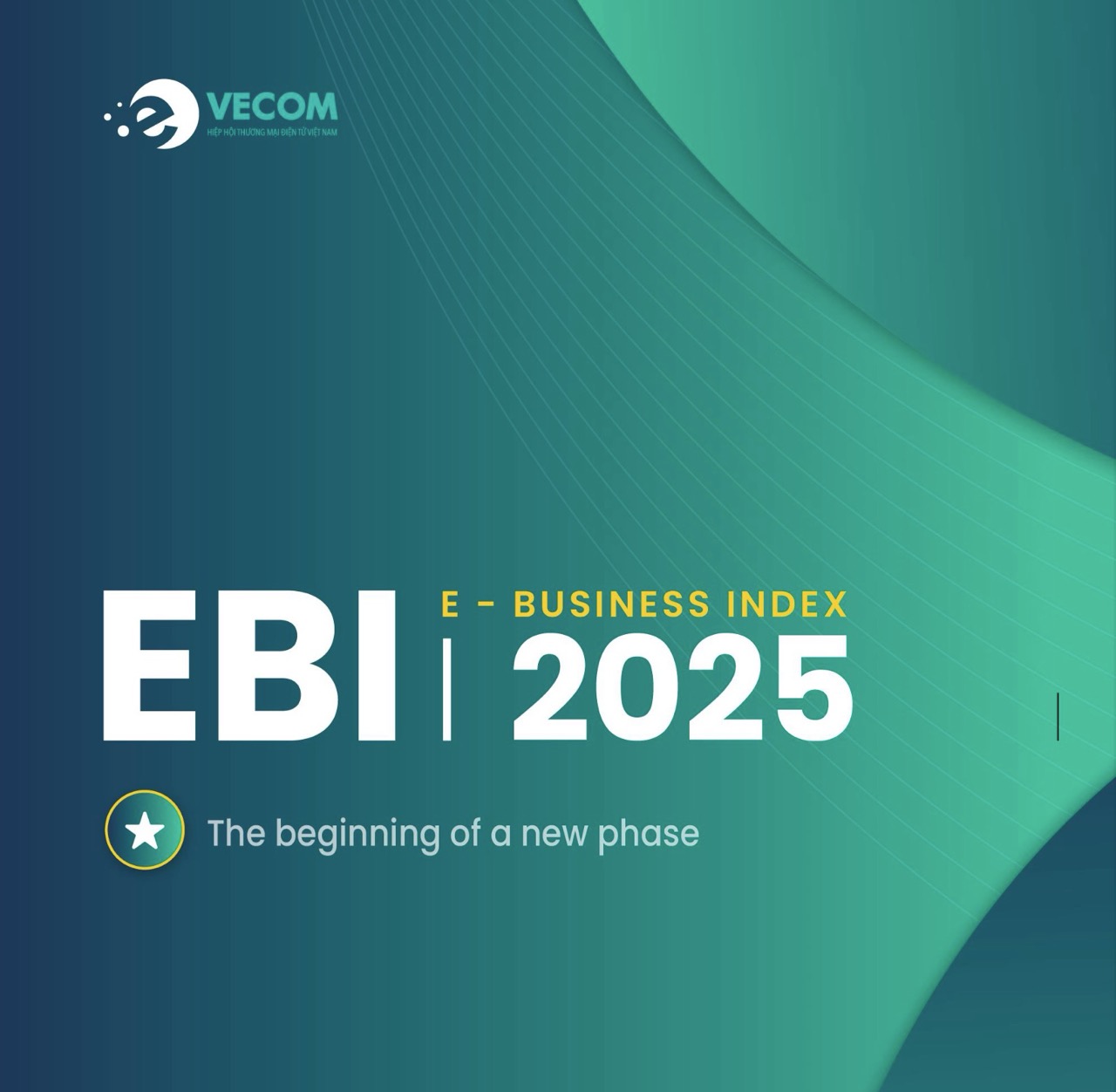Download here
Vietnam’s e-commerce in 2024 was uplifted and reinforced at a solid position, attributed by the annual growth rate up to 27% and the online retail market size reaching 32 billion USD. On that context alongside many policies and legal documents being effective or promulgated in 2025, VECOM assesses that Vietnam's e-commerce is about to enter the fourth phase - the stage of rapid and sustainable e-commerce development.
Back in 2015, VECOM assessed that the period from 1998 to 2005 was the formation of e-commerce with prominent activities of building infrastructure for e-commerce. In this first stage, information technology and telecommunications infrastructure, especially the Internet, met the initial qualifications for doing online business. At the same time, the legal validity of e-commerce was established in the Law on Electronic Transactions, the Law on Information Technology, the Civil Code, the Commercial Law and a number of other laws. The second phase from 2006 to 2015 was e-commerce popularization. In this duration, millions of people started shopping online, many digital business platforms were initiated, and businesses showed great an interest in building websites. From 2016, our country's e-commerce moved to the third phase with the highlight of a rapid growth, a high percentage of consumers shopping online and a large number of the enterprises implementing e-commerce. However, many major issues emerged, including negative impacts of e-commerce on the environment, low rate of online exports, and large imbalances among localities.
The phases of popularization and rapid development of Vietnam's e-commerce began two decades ago with the introduction of the E-commerce Development Master Plan for the period 2006 – 2010 and Decree No. 57/2006/ND-CP on e-commerce.
By 2025, the scale of e-commerce in our country has seized a significant position in the field of commerce and digital economy. Policies and legal documents on tax, customs, import and export issued at the end of 2024 and being effective in 2025 mark a starting point for e-commerce to enter a new phase. Meanwhile, the National E-commerce Development Master Plan for the 2026-2030 period and especially the E-commerce Law will play a central role in the period of rapid and sustainable development.
The 2025 E-Business Index report is built on the basis of surveying thousands of the enterprises across the country, collecting information related to e-commerce from many organizations and synthesizing newly issued or draft policies and legal documents.
This year, VECOM continues to improve the method of measuring the E-Business Index. In particular, for the first time, information on postal services delivered for e-commerce by locality from state management agency in charge of postal services has been adopted in the calculation of the retail e-commerce (B2C) index.
This year's E-Business Index report is a useful source of information for all people interested in online business, including enterprises, research and consulting firms, policy and legal institutions, etc. In particular, local state management agencies such as the Department of Industry and Trade or the Department of Science and Technology can propose specific activities under their management to promote each component of the general index, thereby contributing to the development of e-commerce in the locality.





























